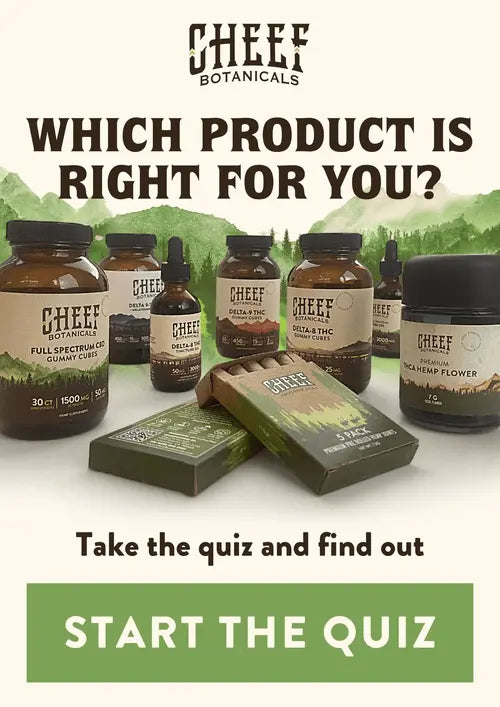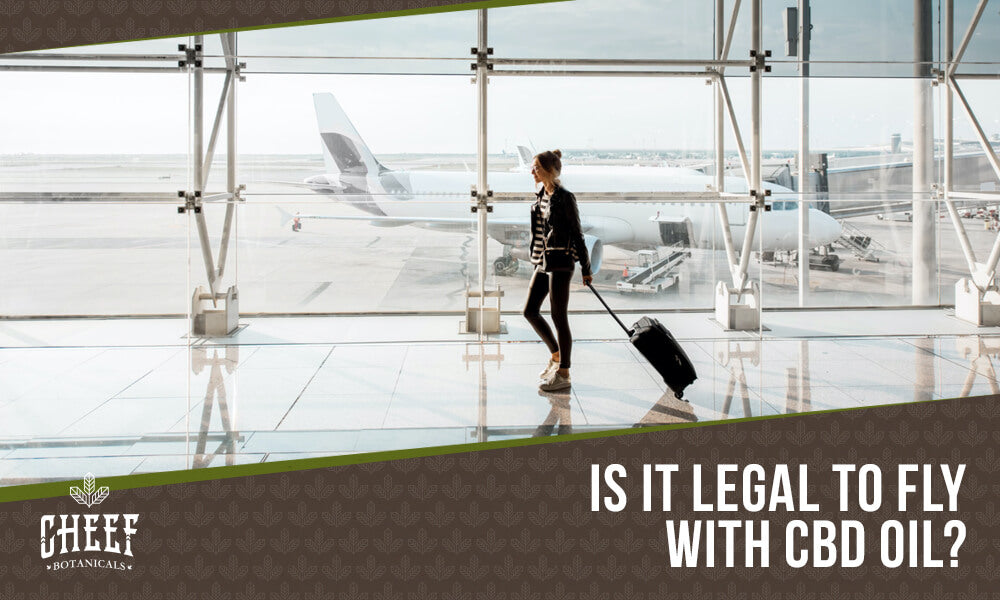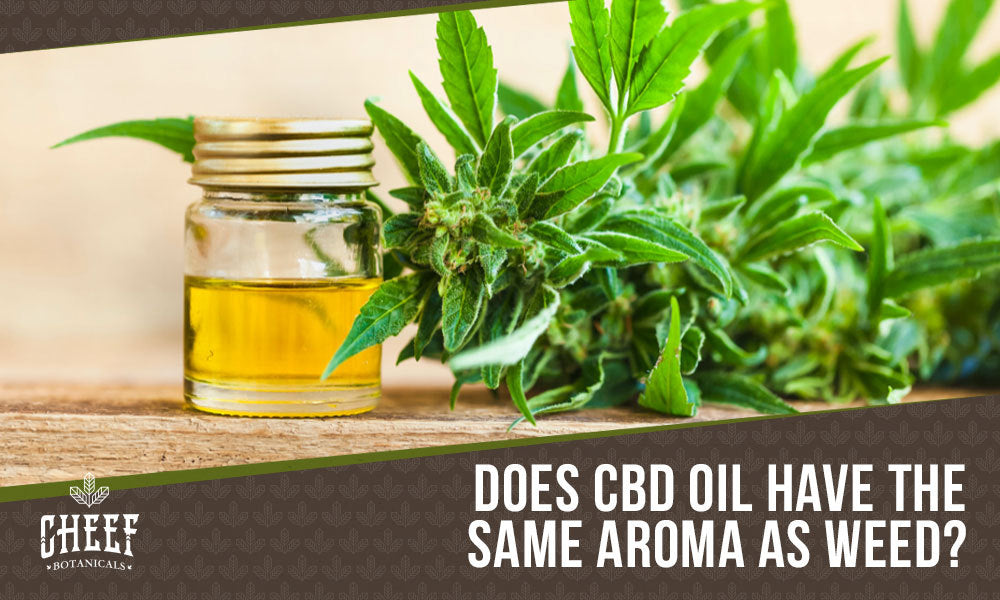Should I Take CBD With THC or Without it?
The legalization of CBD, and the partial legalization of recreational and
medicinal marijuana across the nation, are ushering in a new age. Many newcomers gravitate towards CBD because it offers plenty of natural benefits and it's not psychoactive. If you are new to CBD it's important to know your options so you can find a product that suits you best. There are all types of
CBD products available but no matter what type you choose it will fall under one of three categories: full-spectrum, broad-spectrum, or isolate. The main reason these options are separated is that
some have CBD with THC and some don't. It's up to you to decide what one's better for you or which one you prefer. So what's the difference? Let's compare and see.
What are CBD and THC?
Cannabidiol (CBD) and
Tetrahydrocannabinol (THC) are natural cannabinoids created by the cannabis plant. They are classified as
phytocannabinoids because they are created inside a plant. Researchers are still learning and discovering more cannabinoids in cannabis, but THC and CBD are the most utilized at this time.
THC is the cannabinoid that provides psychoactive effects, while CBD will not get users "high". Although there is much more to each than psychoactive feelings. Both of these cannabinoids are special because they are capable of interacting with your endocannabinoid system (ECS). Your ECS naturally produces its own cannabinoids that it uses to regulate specific functions of the body. Phytocannabinoids like THC and CBD can influence your ECS' functionality and endocannabinoid production.
Cannabinoids made by the ECS are classified as
endocannabinoids because they are made inside the body. These natural cannabinoids are important to everyday functions because they help to regulate our digestive system, immune system, cardiovascular system, nervous system, and more.
Cannabinoids & Your ECS
All mammals have an ECS. This internal system is mainly comprised of two types of receptors, CB-1 and CB-2 receptors. Your CB-1 receptors are mainly located in your brain, although they are also located throughout the body. Your CB-2 receptors are mainly located in your gut, which may explain CBD's effects on the immune system.
By using cannabinoid receptors and cannabinoids, the ECS helps to regulate several important bodily functions through homeostasis. For example, your ECS helps regulate appetite, sleep, mood, inflammation, soreness, pain, stress, anxiety, and more. While the body does create its own cannabinoids, THC and CBD interact with your ECS in different ways.
THC has been known to bind with CB-1 receptors. CBD, on the other hand, does not bind to any receptors. Although, researchers suggest that CBD may influence the ECS and CB-2 receptors to produce their own cannabinoids. Since both cannabinoids interact with your ECS in different ways, their combined use should offer the most benefits. This is why full-spectrum CBD products contain minuscule amounts of THC.
When you intake and combine all of the cannabinoids and compounds in cannabis you create the best outcome which is called the "entourage effect". This effect is special because it allows each compound to be more effective when taken in combination than if each was taken alone separately.

CBD vs THC
Both of these cannabinoids share some similarities. Since they interact with your ECS differently though, there are also a handful of differences.
Similarities Between CBD and THC
Both of these cannabinoids come from the cannabis plant. Each one interacts with the ECS, which helps regulate and promote overall wellness and homeostasis. THC and CBD can both be taken using several methods, including inhaling, ingestion, and topical applications.
These cannabinoids are currently undergoing extensive research regarding therapeutical properties. Although, THC is the more popular of the two cannabinoids because the discovery of CBD is somewhat new. As time progresses, researchers continue to find new and promising cannabinoids in cannabis.
Differences Between CBD and THC
The main difference between THC and CBD is the psychoactive element of one over the other. THC is known to give users a "high," while CBD has no psychoactive effects. Because CBD does not give you a high, but can still interact with the ECS, many consumers have begun to lean more toward CBD. The
Farm Bill of 2018 legalized hemp, which is cannabis grown with 0.3% THC or less. This Farm Bill officially legalized CBD across the nation, while THC-laden plants are still illegal in many states.
Related: THC vs CBD
Which CBD Products Have THC?
CBD products are broken down into three categories: Full Spectrum CBD, Broad Spectrum CBD, and CBD Isolates. Only full-spectrum CBD products will contain THC, the other options will not. Here is a more thorough description of each type:

Full Spectrum CBD
A full spectrum product will contain all of the cannabinoids in the cannabis plant, including THC. Full Spectrum products offer the "entourage effect" we discussed earlier. These CBD products can have up to 0.3% of THC, according to the law, this amount is too minuscule to provide consumers with the "high" that you typically associate with THC. Therefore, the cannabinoids in full-spectrum products work together to provide the best benefits and they won't get you high.
Broad Spectrum CBD
Broad Spectrum products contain all of the cannabinoids in the cannabis plant excluding THC. Because there is no THC in Broad Spectrum CBD products, they have become very popular with athletes, active duty military members, and others that are looking to experience the benefits of CBD but are concerned about THC showing up on a drug test. Because other cannabinoids and compounds are still in existence, the entourage effect can still be partially attained.
CBD Isolates
CBD isolate and CBD isolate products are the purest form of Cannabidiol. All of the other compounds and cannabinoids (besides CBD) in the cannabis plant have been removed. CBD Isolates are typically 99% pure, but consumers should always read the label before purchasing to make sure.
The Legal Amount of THC in CBD Products
According to the 2018 Farm Bill, legal cannabis or hemp cannot contain more than 0.3% THC. This means that hemp is now legal all across the nation. Between 1937 and 2018 it was illegal to grow "hemp" no matter what amount of THC it had. In fact, from 1970 to 2018 hemp was officially on the "controlled substance" list, where it was categorized as a schedule 1 drug. Luckily for all those who benefit from CBD today, the 2018 farm bill once again solidified the legitimacy of hemp and made it legal.
As for THC products with high THC content above 0.3%, there are states where cannabis is legal for medicinal and recreational use as well. In those states, consumers can find CBD products that contain more than 0.3% THC. It is not uncommon for pre-rolls or CBD flowers to be sold in places like Denver or Los Angeles to have high amounts of THC and CBD. However, if you're in search of a product that adheres to the 0.3% THC limit, you'll find CBD oil in Denver. Consumers should always read the label before they purchase a product. THC amounts over 0.3% can lead to psychoactive feelings.

Benefits of CBD with THC
THC and CBD being utilized together will give consumers the best benefits. When all the cannabinoids and compounds in cannabis work together to provide the maximum benefits, that is called the entourage effect. That is because both CB-1 and CB-2 receptors in the ECS get stimulated when THC and CBD work together.
Benefits of CBD without THC
CBD Isolates and Broad Spectrum CBD, both of which have no THC, have their own benefits. There are millions of Americans who are concerned about drug tests, or simply do not want THC in their system. Isolates are the purest form you can get of CBD, while Broad Spectrum CBD still contains other cannabinoids that combine for added effect.
Is CBD Better With or Without THC?
Simply put, yes CBD with THC is better. Full Spectrum CBD products can provide consumers with maximum benefits due to the entourage effect. Still, it all depends on what you are looking for. If you are an active-duty military member, then Full Spectrum is not the best product for you because of the THC content. Although 0.3% THC may not be enough to show up on select drug tests, continued use of Full Spectrum CBD will cause THC to build up over time. The situation is different for everyone though. If you are not concerned about THC being in your system, Full Spectrum CBD products are the way to go.
Final Thoughts Regarding CBD With THC
Hopefully, the CBD market is a little less complicated for you now. Consumers should make sure that they are checking the labels of all products that they purchase. It is important to make sure the CBD or THC you are buying has been tested by a third-party lab. Many CBD oils also use carrier oils to help with production. Carrier oils may include coconut oil, almond oil, grapeseed oil, and others. If you have an allergy, it is always best to check all of the ingredients in the product you are purchasing. THC and CBD are just the beginning. Researchers are continuing to find more cannabinoids in cannabis, and as time progresses, we only learn more about the benefits of this plant.

Author Bio
Nick Cruz
Writer
Nick highlights value, quality, and fit to help you choose the right product fast.






 CBD Gummies - Top Seller
CBD Gummies - Top Seller
 CBD + THC Gummy - Excellent Choice
CBD + THC Gummy - Excellent Choice
 CBD Hemp Flower - Highly Rated
CBD Hemp Flower - Highly Rated
 Full Spectrum CBD Oil - Good Value
Full Spectrum CBD Oil - Good Value



Leave a comment
This site is protected by hCaptcha and the hCaptcha Privacy Policy and Terms of Service apply.